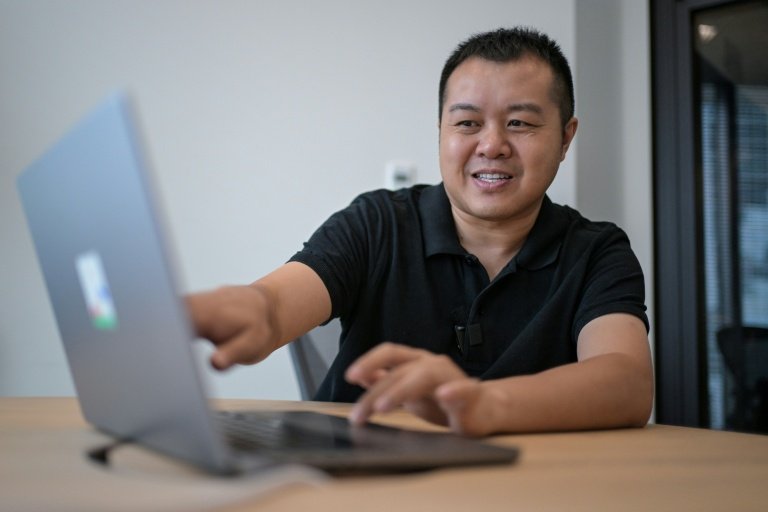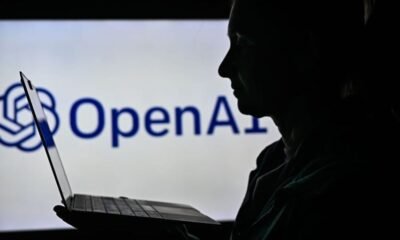Tools & Platforms
The Three Skills You Need To Master In The Age Of AI, According To Tech Execs

AI agent adoption is projected to grow by 327% by 2027, a new report from Salesforce (NYSE:CRM) finds. This is expected to increase a company’s productivity by 30%, but will drastically impact the way those companies are organized and run.
With the implementation of these AI agents, an estimated 61% of a company’s workforce will remain in their current roles. However, their day-to-day responsibilities will almost certainly be impacted, human resource executives said.
Around 75% of the HR executives surveyed said that they expect soft skills to become much more important and that collaboration and adaptability skills will become increasingly valued in the new AI economy.
Don’t Miss:
Tech executives who spoke to Business Insider about the findings agreed, highlighting three skills in particular.
First, you’ll need to become a generalist.
“Deep expertise will be less valued” in this new AI-driven world, Cognizant Technology Solutions (NASDAQ:CTSH) CEO Ravi Kumar told the outlet. Instead, he suggests learning how to merge that expertise with technological capabilities to make yourself a more appealing candidate.
Cloudflare Inc. (NYSE:NET) CEO Matthew Prince agreed, saying, “We’re trying to find people who have a broad set of skills and can be general.”
Second, tech executives say creativity will be the key to making yourself stand out from the crowd.
Trending: Named a TIME Best Invention and Backed by 5,000+ Users, Kara’s Air-to-Water Pod Cuts Plastic and Costs — And You Can Invest At Just $6.37/Share
Dropbox (NASDAQ:DBX) Vice President of Product and Growth Morgan Brown told Business Insider that with AI taking on many of the more mundane, time-consuming tasks for many roles, employees will have more time for “expansive thinking” about new ideas.
The third skill you’ll need to master in the age of AI is proficiency with AI tools, execs say.
Google Cloud Product Executive Yasmeen Ahmad told the outlet that successful employees will be able to “interact with these new-age tools and be able to prompt to engineer and ask the right questions and interact in this flow that hasn’t been there before.”
Will Grannis, Google Cloud’s chief technology officer, took things a step further, telling Business Insider a strong candidate will not only know how to craft their queries effectively but will go “beyond the formal curriculum” to learn how to do things like use AI to code.
Tools & Platforms
Top Japan start-up Sakana AI touts nature-inspired tech – personcountylife.com

Top Japan start-up Sakana AI touts nature-inspired tech personcountylife.com
Source link
Tools & Platforms
The challenge goes beyond merely understanding how AI works

As AI evolves from simple automation to sophisticated autonomous agents, HR executives face one of the most significant workforce transformations in modern history. The challenge isn’t just understanding the technology — it’s navigating culture change, skills development and workforce planning when AI capabilities double every six months.
Simon Brown, EY’s global learning and development leader, has spent nearly 2 years helping the firm’s 400,000 employees prepare for an AI-driven future. With his past experience as chief learning officer at Novartis and his work with Microsoft, Brown offers critical insights on positioning organizations for success in an autonomous AI world.
What are the top questions C-suite executives need to ask their teams about agentic AI initiatives?
Are people aware of what’s possible with agents? Are we experimenting to find ways agents can help us? Do we have the skills and knowledge to do that properly?
But the most critical question is: Is the culture there to support this? Most organizations are feeling their way through which tools work, what the use cases are, what drives value. There’s a lot of ambiguity. Some organizations manage well through uncertainty; others need clear answers and can’t fail — that’s hard when there’s no clear path and people need to experiment.
How can leaders assess whether their organization has the right culture for agentic AI?
Look at how AI tools like Microsoft Copilot are being embraced. Are people experimenting and finding productivity value, or are they threatened and not using it? If leaders are role modeling use and encouraging their people, that comes through in adoption metrics. Culture shows through communication, leadership role modeling, skill building and time to learn.
What are common blind spots when executives evaluate AI readiness?
Two major issues. First, executives often aren’t aware of what’s possible with the latest AI systems due to security constraints and procurement processes that create 6-to-12-month lags.
Second, the speed of improvement. If I tried an AI tool a month ago versus today, I may get a completely different experience because the underlying model improved. Copilot now has GPT-5 access, giving it a significant overnight boost. Leaders need to shift from thinking about AI as static systems upgraded annually to something constantly improving and doubling in power every six months.
How should leaders approach change management with AI agents?
Change management is essential. When OpenAI releases new capabilities, everyone has access to the technology. Whether organizations get the benefit depends entirely on change management — culture, experimentation ability, skills and whether people feel encouraged rather than fearful. We’re addressing this through AI badges, curricula, enterprise-wide learning — all signaling the organization values building AI skills.
What’s your framework for evaluating whether AI investment will drive real business value?
I think about three loops. First, can I use this to do current tasks cheaper, faster, better? Second, can I realize new value — serving more customers, new products and services? Third, if everyone’s using AI, how do we reinvent ourselves to create new value? It’s moving beyond just doing the same things better to what AI helps us do differently.
How should HR leaders rethink workforce planning given AI’s potential to automate job functions?
Understand which skills AI will impact, which remain uniquely human and what new roles get created. The World Economic Forum predicts significant reduction in certain roles but net increase overall. We’re seeing new, more sophisticated roles created that move people higher up the value chain.
From HR’s perspective, are our processes still fit for AI speed? How are we incentivizing reskilling? Are we ensuring learning access and time? How are we signaling which skills are in demand versus at risk of automation?
How should HR measure success after implementing agentic AI?
Tie back to why it was implemented — business value. Use similar metrics as before but look at what changed. Maybe same output but cheaper, faster, better. Or new capabilities — our third-party risk team uses agents to provide much more extensive supplier analysis than before. Same team size, more client value.
What’s your timeline perspective on when agentic AI becomes competitive necessity versus advantage?
That’s the ultimate question. I’m amazed daily by what I achieve using AI and agents. ChatGPT-5’s recent capabilities are mind-blowing, suggesting dramatic impact quickly. But when deep AI experts have vastly different views — from AGI around the corner to decades away — it’s understandable why leaders struggle to navigate this landscape.
Tools & Platforms
Top Japan start-up Sakana AI touts nature-inspired tech

When David Ha started an AI company in Japan with his former Google colleague, they had a choice: create another huge, energy-intensive tool like ChatGPT, or go their own way.
Since its 2023 launch, the value of their firm Sakana AI has soared past $1 billion, becoming Japan’s fastest start-up to reach so-called unicorn status.
“In a space like AI, everyone’s kind of doing the same thing. They’re just like collecting the world’s data, building a gigantic model, sucking up all this energy,” Ha told AFP.
For a new venture, “the chance of success is actually quite low, especially in Japan”, where the resources to run power-hungry data centres are scarce.
Instead of going head-to-head with top players like OpenAI or Alibaba, Sakana aims to merge existing and new systems, large and small, to develop what it calls “collective intelligence”.
In many countries, “people are debating, should I use a Chinese model or should I use a US model?” Ha said, referring to AI foundation models trained on vast amounts of data.
But in today’s tumultuous world, “you can imagine… a scenario where a certain provider might turn off their models”, he added.
Combining the best aspects of multiple systems means Sakana’s AI-powered programmes could in theory “continue to operate”, he said, even if “with slightly lower performance at the beginning”.
Sakana’s approach has won it the support of US chip giant Nvidia as well as Japanese banks and other businesses keen to get ahead in the fast-moving world of generative artificial intelligence.
The word sakana means fish in Japanese, and the start-up says it is inspired by nature, where species from ants to humans collaborate to solve problems.
– ‘Soft power’ –
Ha, a Hong Kong-born Canadian and long-term Japan resident, is a former Google Brain research scientist who previously traded derivatives for Goldman Sachs.
He founded Sakana AI with ex-Google researcher Llion Jones, co-author of a groundbreaking 2017 machine learning paper, and Ren Ito, who has held positions in Japan’s foreign ministry.
Sakana’s team numbers more than 100, including contractors, and its unassuming offices are located in a shared Tokyo start-up space.
Japan is pouring tens of billions of dollars into AI and semiconductors, hoping to claw back some of its 1980s tech glory and boost the productivity of its shrinking workforce.
But there is some way to go. In academic institute IMD’s 2025 World Competitiveness Ranking, Japan came 35th, with researchers saying it needs to foster entrepreneurship and address labour shortages caused by its ageing population.
-

 Business2 weeks ago
Business2 weeks agoThe Guardian view on Trump and the Fed: independence is no substitute for accountability | Editorial
-
Tools & Platforms4 weeks ago
Building Trust in Military AI Starts with Opening the Black Box – War on the Rocks
-

 Ethics & Policy1 month ago
Ethics & Policy1 month agoSDAIA Supports Saudi Arabia’s Leadership in Shaping Global AI Ethics, Policy, and Research – وكالة الأنباء السعودية
-

 Events & Conferences4 months ago
Events & Conferences4 months agoJourney to 1000 models: Scaling Instagram’s recommendation system
-

 Jobs & Careers2 months ago
Jobs & Careers2 months agoMumbai-based Perplexity Alternative Has 60k+ Users Without Funding
-

 Education2 months ago
Education2 months agoVEX Robotics launches AI-powered classroom robotics system
-

 Podcasts & Talks2 months ago
Podcasts & Talks2 months agoHappy 4th of July! 🎆 Made with Veo 3 in Gemini
-

 Education2 months ago
Education2 months agoMacron says UK and France have duty to tackle illegal migration ‘with humanity, solidarity and firmness’ – UK politics live | Politics
-

 Funding & Business2 months ago
Funding & Business2 months agoKayak and Expedia race to build AI travel agents that turn social posts into itineraries
-

 Podcasts & Talks2 months ago
Podcasts & Talks2 months agoOpenAI 🤝 @teamganassi





















